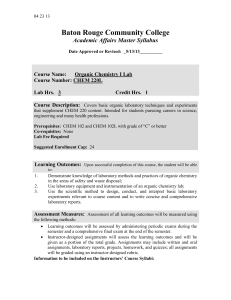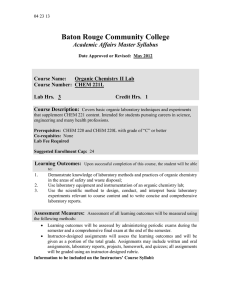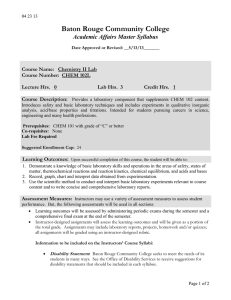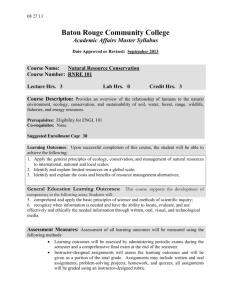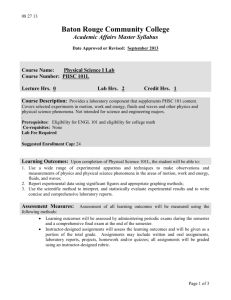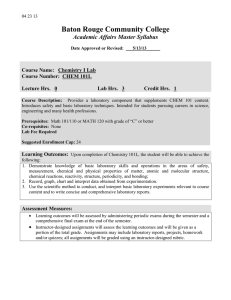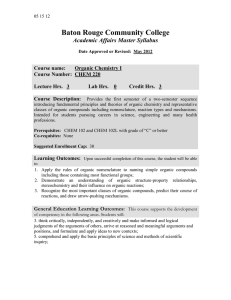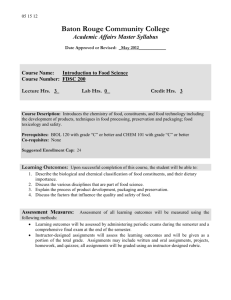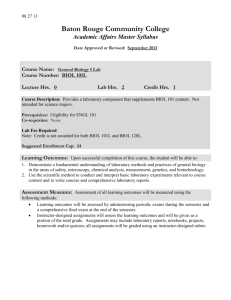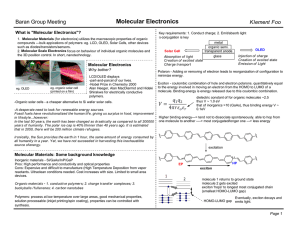Baton Rouge Community College Academic Affairs Master Syllabus
advertisement
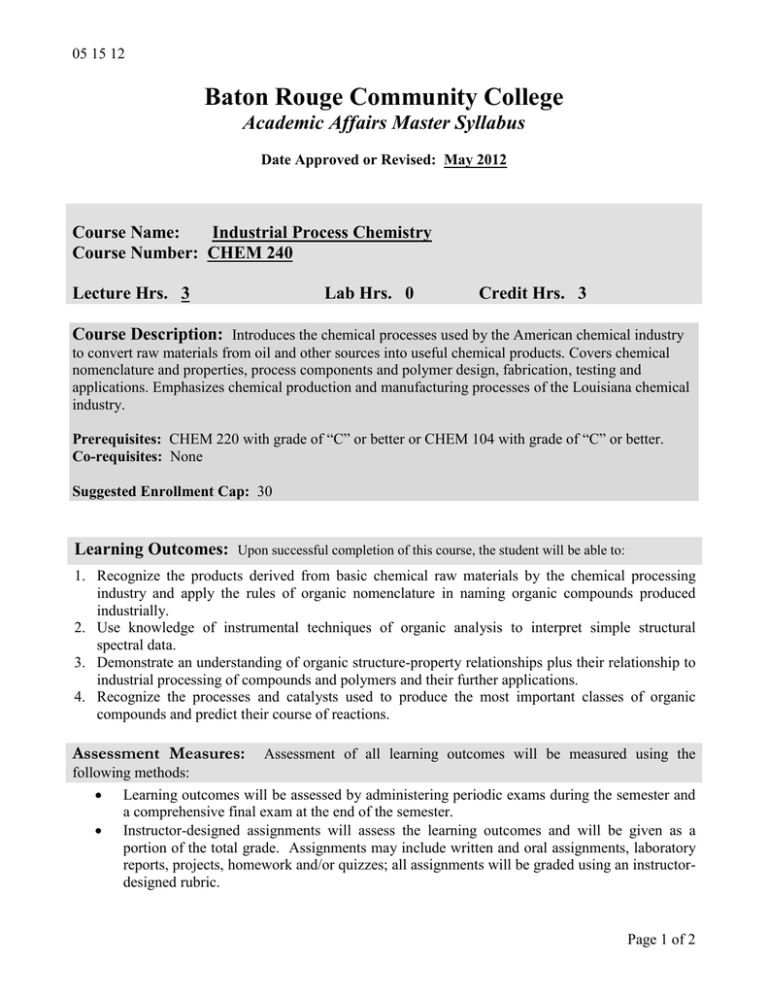
05 15 12 Baton Rouge Community College Academic Affairs Master Syllabus Date Approved or Revised: May 2012 Course Name: Industrial Process Chemistry Course Number: CHEM 240 Lecture Hrs. 3 Lab Hrs. 0 Credit Hrs. 3 Course Description: Introduces the chemical processes used by the American chemical industry to convert raw materials from oil and other sources into useful chemical products. Covers chemical nomenclature and properties, process components and polymer design, fabrication, testing and applications. Emphasizes chemical production and manufacturing processes of the Louisiana chemical industry. Prerequisites: CHEM 220 with grade of “C” or better or CHEM 104 with grade of “C” or better. Co-requisites: None Suggested Enrollment Cap: 30 Learning Outcomes: Upon successful completion of this course, the student will be able to: 1. Recognize the products derived from basic chemical raw materials by the chemical processing industry and apply the rules of organic nomenclature in naming organic compounds produced industrially. 2. Use knowledge of instrumental techniques of organic analysis to interpret simple structural spectral data. 3. Demonstrate an understanding of organic structure-property relationships plus their relationship to industrial processing of compounds and polymers and their further applications. 4. Recognize the processes and catalysts used to produce the most important classes of organic compounds and predict their course of reactions. Assessment Measures: Assessment of all learning outcomes will be measured using the following methods: Learning outcomes will be assessed by administering periodic exams during the semester and a comprehensive final exam at the end of the semester. Instructor-designed assignments will assess the learning outcomes and will be given as a portion of the total grade. Assignments may include written and oral assignments, laboratory reports, projects, homework and/or quizzes; all assignments will be graded using an instructordesigned rubric. Page 1 of 2 05 15 12 Information to be included on the Instructors’ Course Syllabi: Disability Statement: Baton Rouge Community College seeks to meet the needs of its students in many ways. See the Office of Disability Services to receive suggestions for disability statements that should be included in each syllabus. Grading: The College grading policy should be included in the course syllabus. Any special practices should also go here. This should include the instructor’s and/or the department’s policy for make-up work. For example in a speech course, “Speeches not given on due date will receive no grade higher than a sixty” or “Make-up work will not be accepted after the last day of class.” Attendance Policy: Include the overall attendance policy of the college. Instructors may want to add additional information in individual syllabi to meet the needs of their courses. General Policies: Instructors’ policy on the use of things such as beepers and cell phones and/or hand held programmable calculators should be covered in this section. Cheating and Plagiarism: This must be included in all syllabi and should include the penalties for incidents in a given class. Students should have a clear idea of what constitutes cheating in a given course. Safety Concerns: In some programs this may be a major issue. For example, “No student will be allowed in the safety lab without safety glasses.” General statements such as, “Items that may be harmful to one’s self or others should not be brought to class.” Library/ Learning Resources: Since the development of the total person is part of our mission, assignments in the library and/or the Learning Resources Center should be included to assist students in enhancing skills and in using resources. Students should be encouraged to use the library for reading enjoyment as part of lifelong learning. Expanded Course Outline: I. II. III. IV. V. VI. VII. VIII. IX. X. XI. XII. Introduction and Review Raw Materials for the Chemical Industry Ethylene Based Processes Propylene Based Processes C-4 Based Processes BTX Based Processes Selected Monomer and Polymer Processes Polymer/Structure Property Relationships Technology and Polymer Characterization Technology and Polymer Fabrication Polymer Additives and Modifiers Catalysts and Industrial Processes Page 2 of 2
